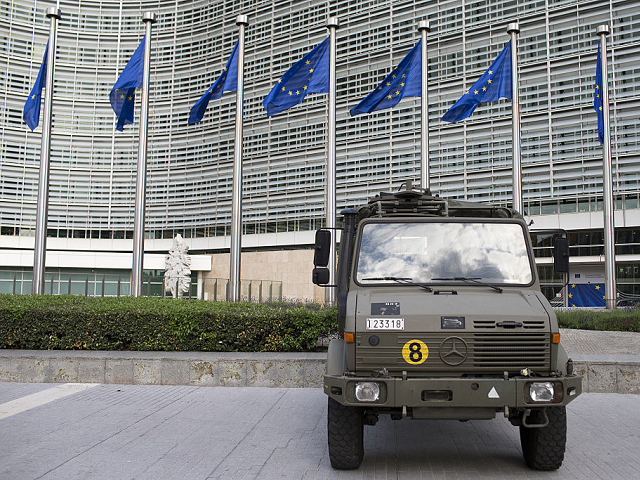BRUSSELS (AFP) – The EU unveiled an unprecedented plan for common defence spending on Wednesday to help Europe stand alone as a global military power, while urging the United States under Donald Trump to remain on the world stage.
The proposal by Brussels for a 5.5-billion-euro a year fund follows a Franco-German led bid to focus on security and defence to provide a new sense of purpose after the Brexit vote last year shook Europe.
But the incentive has grown stronger since the election of Trump, who berated his European partners on military spending at a raucous NATO summit in Brussels last month even as he pursues his “America First” policy.
EU diplomatic chief Federica Mogherini said the bloc would continue to “encourage our American friends to stay engaged in the global scene — I know it sounds surreal to hear this from Brussels to Washington but that is the reality of facts”.
But she said that there was a “growing need, desire to partner with the European Union, part of this might be linked to a certain unpredictability of positions on some issues our partners have seen in Washington.”
Her comments echo those by German Chancellor Angela Merkel who said last week that the US was no longer a reliable partner and that Europe had to take its destiny into its own hands.
The EU military plan would be a key part of this, Mogherini said, although insisting that it would not overlap the NATO military alliance.
“It’s not about substituting neither the alliance nor the United States, but it’s a matter of focusing on what we can do more for our own purposes, our own interests,” she said.
Adding to the sense of chaos, is a more assertive Russia and a series of deadly attacks claimed by Islamic State group in France, Belgium and Britain.
– No ‘EU army’ –
The new EU fund will consist of two parts.
The first will help member states finance defence research into fields such as electronics, encrypted software, robotics and drones.
A draft unveiled at the end of 2016 envisaged a research programme with an annual budget of around 500 million euros after 2020.
The fund’s second portion will pool resources for big-ticket hardware purchases such as tanks, helicopters and drones.
This part would reach a budget of five billion euros a year once fully operational, with the commission arguing that member states waste 25 to 100 billion EU-wide when going alone.
Big questions remain on how the EU budget will pay for the new defence plans. The bloc will soon face an estimated 10-billion euro hole with the exit of net contributor Britain.
European nations also need to meet Trump’s demand that all NATO nations meet their commitment of spending 2 percent of GDP on defence.
But France and Germany, the EU’s powerhouses, have asked the commission to seize on Brexit as an opportunity for further defence cooperation given that Britain has always opposed closer EU defence ties.
London historically has feared that too much cooperation in Europe on military matters would diminish the centrality of US-dominated NATO to Europe’s security.
This opposition persists. EU member states last month agreed to set up a military command for training missions, but objections by Britain forced them to stop short of creating a full headquarters.
Brussels has repeatedly denied that it is creating an “EU army”.

COMMENTS
Please let us know if you're having issues with commenting.